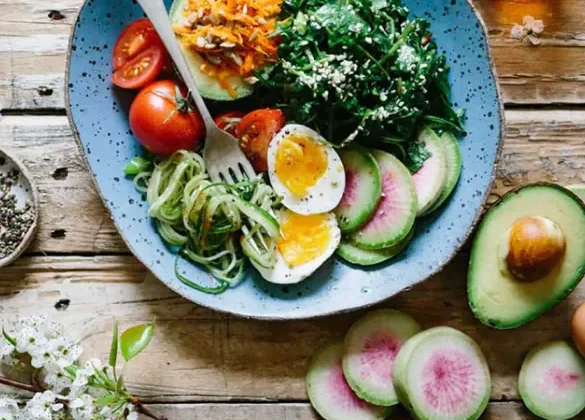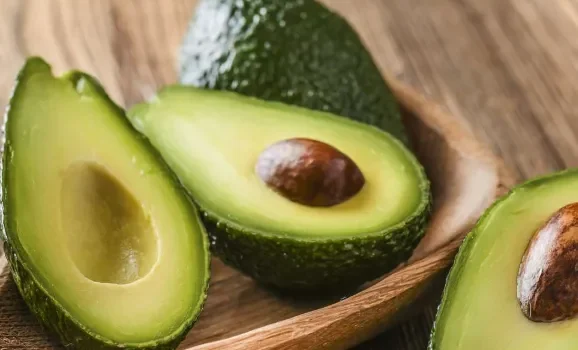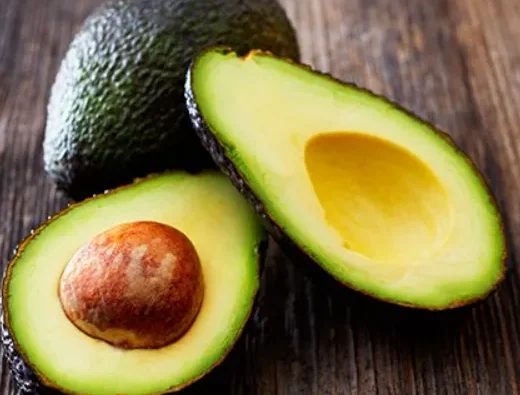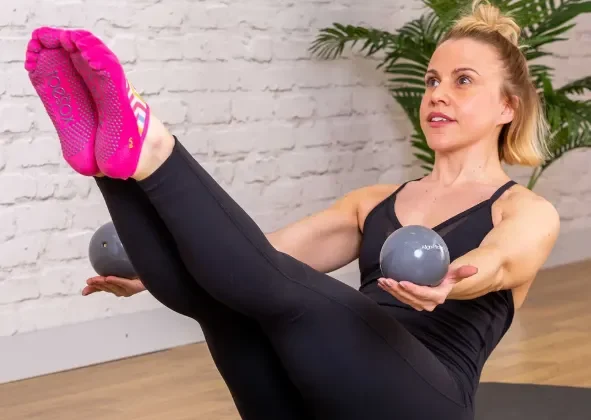When was the last time someone asked, “How are you doing?” and your response was something like, “Busy!” or “Stressed out”? If you’re like many, this might be a familiar answer. Balancing work, family, and other responsibilities can leave you feeling mentally and emotionally drained. It’s easy to turn to comfort foods like pizza, wine, or chocolate in an attempt to relieve stress, but do these habits truly help, or do they make things worse?
In this blog, we’ll explore how certain foods can either contribute to or alleviate stress and anxiety. You’ll also discover simple changes you can make to your diet that can help improve your stress management and leave you feeling more balanced and calm.
The Link Between Food and Stress
The food we consume has a direct impact on our mental and physical health. Some foods may worsen stress and anxiety, while others can provide relief. A well-balanced diet with the right nutrients can help reduce stress hormones like cortisol, improve brain function, support the immune system, and promote overall well-being.
Incorporating the right foods into your diet can provide calm, support mental clarity, and help your body cope better with stress. These nutrients interact with your body’s chemistry to improve your ability to manage anxiety and stay grounded.
Key Nutrients That Reduce Stress and Anxiety
To better handle stress, certain nutrients play a crucial role:
- Fruits & Vegetables (5-10 servings per day): Packed with vitamins and antioxidants, these foods help protect against stress-induced damage in the body. Diets rich in fruits and veggies have been shown to lower stress levels.
- Vitamin C (90-2000 mg/day): This vitamin not only boosts mood but also helps treat stress-related disorders and lowers cortisol levels. It can help your body recover more quickly after stressful events.
- Vitamin B5 and B12 (B5: 5 mg/day; B12: 2.5 mcg/day): These vitamins are essential for producing mood-enhancing chemicals like dopamine and serotonin. B deficiencies can make stress symptoms worse.
- Magnesium (310 mg/day): Magnesium helps relax the body and mind, relieving tension and supporting dopamine production, which helps combat stress.
- Omega-3 Fatty Acids (1000-2200 mg/day): These essential fatty acids reduce inflammation and help stabilize mood. Omega-3s are considered “brain food” and work as natural antidepressants.
- L-theanine (200 mg): Found in green and black tea, L-theanine promotes calmness without causing drowsiness and has proven anti-stress effects.
Top Stress-Relieving Foods to Add to Your Diet
Wondering how to get these nutrients into your daily meals? Here’s a list of the top foods to help reduce stress and anxiety. Add these to your diet to feel more relaxed and in control:
- Green vegetables: Spinach, kale, asparagus, broccoli, bok choy (aim for 4-6 servings per day)
- Fruits: Oranges, grapefruit, kiwi, berries, bananas (aim for 4-6 servings per day)
- Protein: Wild-caught salmon, pasture-raised eggs, tempeh, lentils, and beans (aim for 3-5 servings per day)
- Whole grains: Oats, quinoa, buckwheat (aim for 3 servings per day)
- Healthy fats: Avocado, flaxseed oil (aim for 2-3 servings per day)
- Seeds & Nuts: Chia seeds, flaxseeds, walnuts, pumpkin seeds (aim for 3-5 servings per week)
- Dark chocolate: Opt for chocolate with 70% cacao or higher (1-2 servings daily)
- Decaf tea: Green or black tea contains L-theanine, which helps promote calmness. Aim for 1 cup per day (note that you may need to supplement if you find a few cups insufficient).
What About Comfort Foods?
Now, let’s talk about comfort foods like pizza, wine, and chocolate. These items may provide temporary pleasure, but they’re part of the Standard American Diet (SAD)—a diet full of processed foods, red meat, high-fat foods, and sugar. Unfortunately, many of these “comfort foods” can actually increase stress rather than relieve it.
When you’re consistently eating foods that are low in nutrients and high in unhealthy fats and sugars, you’re essentially fueling your body with “low-grade” fuel. Just like your car needs premium fuel to run efficiently, your body thrives on high-quality, nutrient-dense foods like organic vegetables, healthy fats, and lean proteins.
Foods That Contribute to Stress
The following foods should be reduced in your diet, as they contribute to inflammation and stress:
- Processed meats: Bacon, salami, hot dogs, sausages
- Packaged snacks: Chips, cookies, cakes, and granola bars
- Fried foods: French fries, fried chicken, fast food
- Refined sugars and carbs: White bread, pasta, candy, soda, ice cream
- Alcohol and caffeine: Though they might provide temporary relief, these can cause energy crashes and disrupt sleep, worsening stress in the long run.
Swapping Stress-Inducing Foods for Healthier Alternatives
So, what can you eat instead? Here are a few simple swaps to upgrade your diet:
- Swap white pasta for whole grain or lentil pasta.
- Switch refined sugar for honey or maple syrup.
- Choose lean meats like chicken or turkey instead of bacon and sausage.
- Make your own healthy burgers using lean beef and sweet potato fries instead of greasy fast food.
Even simple changes like these can reduce stress while still satisfying your cravings for comfort foods. A better alternative like “nice cream” made with frozen bananas can give you a healthy dessert that’s rich in magnesium and vitamins.
Don’t Forget Movement
While eating stress-relieving foods is essential, physical activity is just as important. Exercise is one of the most effective ways to combat stress. Not only does it release stress-reducing hormones like endorphins, but it also helps regulate your body’s stress hormones, like cortisol.
Here are a few quick ways to get more exercise into your day:
- Take a 20-30 minute walk during your lunch break.
- Try a short 15-minute run or bike ride before or after work.
- Take the stairs instead of the elevator.
- Join a yoga class to practice breathing techniques and relieve tension.
Final Thoughts
By choosing the right foods and making small changes to your diet, you can reduce stress and anxiety significantly. Combine these dietary improvements with regular physical activity, and you’ll be well on your way to feeling more balanced, energetic, and relaxed. Start today by incorporating these stress-reducing foods into your meals, and feel the difference in how you manage life’s challenges.











